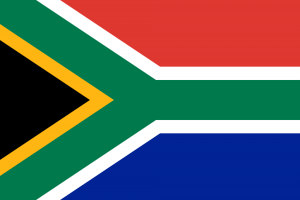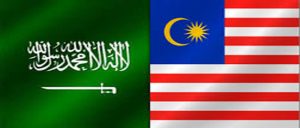PAKISTAN has evolved a comprehensive package in line with Saudi Vision-2030 to promote bilateral trade and investment  between the two countries.
between the two countries.
The package envisages measures to ease procedures for business visa, remove non-tariff barriers and initiate talks on a preferential trade agreement (PTA).
The package will be discussed at a high-level forum — Saudi-Pak Joint Ministerial Commission (JMC) — scheduled for Jan 16. The commission will be convened with a delay of more than three and a half years as its last meeting was held in April 2014.
Over the past few years, Pakistan’s bilateral trade with Saudi Arabia has posted a consistent decline, dropping by a half to $2.5bn in 2016-17 from $5.08 billion in 2013-14. One reason is fall in the value of petroleum products, which constitute 50pc of total imports.
Pakistan’s exports to Saudi Arabia is on the wane mainly due to a drop in proceeds of rice, fruits, vegetable preparations, apparel and clothing and made-up articles of textile material.
The proposed PTA will not only cover tariffs but also non-tariff barriers, and will provide a chance to diversify the exports basket to the kingdom
Minister of State for Finance and Economic Affairs Rana Muhammad Afzal Khan told this scribe that as the Saudi vision envisages transforming its socio-economic development, Pakistan looks forward to upgrade manpower by sending highly qualified, technical and skilled personnel to Saudi Arabia, especially those working in the automobile and other specialised sectors.
Pakistani workers currently working in Saudi Arabia are semi-skilled or have no skills.
He listed several opportunities in the halal food sector, cattle farming, milk, fisheries and other agro industry projects for investment by Saudi Arabia. The Saudi government will also be requested to set up a refinery in Pakistan.
As part of the package, Pakistan will formally offer Saudi Arabia to initiate a dialogue on a preferential trade agreement. The decision to negotiate PTA was taken following no breakthrough in the proposed Pakistan-Gulf Cooperation Council dialogue on a free trade agreement. Pakistan had only two rounds of negotiations with the bloc since 2006.
The proposed PTA will not only cover tariffs but also non-tariff barriers, and will provide a chance to diversify Pakistan’s export basket to Saudi Arabia.
Currently, one of the major components of Pakistan’s exports to Saudi Arabia is rice. However, its exports are constantly in decline for the past few years.
Saudi Arabia will become the second country after Iran with which Pakistan will have a bilateral preferential arrangement.
Another important area of the package is to simplify the business-visa regime. Currently, the process of approval involves multiple departments and getting the visa takes at least six weeks.
Similarly, Saudi Arabia has increased the business visa fee to Rs74,000 per person for attending any business activity in the country. This has discouraged a large number of Pakistanis from participating in Saudi exhibitions.
Not a single Pakistani company participated in the Saudi Health 2017 exhibition. Pakistan wants this fee to be waived on business visas.
There is another proposal on the table to reactivate interaction between the top chambers body of the two countries. The Pak-Saudi Joint Business Council was formulated in 2000. So far the body met three times in 17 years and thus suggesting a dormant role in promoting business-to-business meetings.
It is also under consideration to discuss the timeline to nominate members on the council and its regulation meetings schedule in the upcoming JMC.
Three more important areas to be discussed at the upcoming JMC are the establishment of a joint working group on trade, investment and customs. It will coordinate with the Saudi ministry of commerce and investment to enhance bilateral trade and investment.
For resolving non-tariff barriers, two important issues will be discussed. The first one will be a mutual recognition agreement to avoid delay in customs and clearance of Pakistan’s export shipments at Saudi ports. The second issue will be quality assurance certificates to be recognised by Saudi Food and Drug Authority.
To do away with delay, the Saudi government will be asked to simplify the process of opening letters of credit at Saudi banks and avoiding procedural delays to encourage businessmen to trade
with Pakistan. There are many Pakistani products which are facing difficulty in entering the Saudi market due to these non-tariff measures.
Secretary Commerce Younus Dagha told this scribe that Pakistan will raise the issue of removing ban on Pakistan’s shrimp exports to Saudi Arabia. He said Pakistan will also seek licence for State Life to do business in Saudi Arabia besides holdings of single-country exhibitions to promote market access for its products in the kingdom.
He confirmed three important areas of the package to be discussed at the JMC — talks on PTA, mutual recognition agreement and business visas facilitation.



